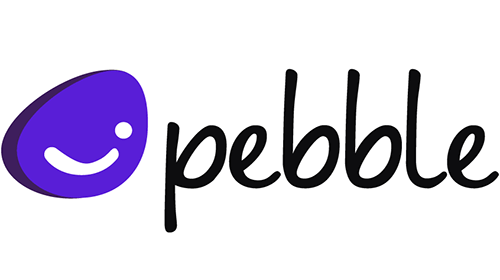Pebble, the social media site formerly known as T2 Social, has officially announced its exit from the crowded field of Twitter clones. The company, created by ex-Twitter employees, made the announcement just five weeks after rebranding as Pebble. The decision to close down was driven by the lack of sufficient growth to convince investors that Pebble would break out in the highly competitive market.
The closure of Pebble doesn’t mark the end for its current users, as they will be given a grace period to log in and download their personal archives. To access this option, users need to go to their account settings on the web version and look for the “wrap it up please” feature. Additionally, Pebble hinted at a potential reinvention of the platform in the future, encouraging users to “stay tuned” for any updates.
One of Pebble’s core missions was to fulfill Twitter’s original goal of becoming a “public town square.” It attempted to differentiate itself by offering features that catered to verified Twitter users, allowing them to retain their checkmarks. However, the shutdown of the app indicates that this strategy did not yield the desired results.
For users seeking alternatives to the prevalent issues on Twitter, such as endless porn bots and self-obsessed verified users, there are numerous options available. In addition to prominent Twitter-like apps like Threads and Bluesky, there are also platforms like Mastodon, Post, Spoutible, Spill, Hive Social, and CounterSocial that offer unique features and experiences. With the last day to post on Pebble set for November 1, users may choose to explore these alternative platforms as they bid farewell to Pebble.
The closure of Pebble highlights the challenges faced by Twitter clones in an oversaturated market. The majority of these platforms struggle to differentiate themselves from Twitter and attract substantial user traffic. Building a complete and sustainable alternative to Twitter requires time, dedication, and significant investment. Unfortunately, Pebble did not receive the necessary support from investors to continue developing its product.
Despite its closure, the potential reinvention of Pebble in the future demonstrates the resilience and adaptability of companies in the social media landscape. The platform’s creators may be working on a new iteration of Pebble that addresses the issues that hindered its growth and adoption. While the specifics of this potential reinvention are not yet known, it signals a glimmer of hope for Pebble enthusiasts who appreciate its original mission and features.
In conclusion, Pebble’s exit from the Twitter clone market highlights the challenges faced by such platforms in a crowded and competitive space. Despite its closure, current users have the opportunity to download their personal archives, and the company hints at a potential future reinvention. As Twitter users search for alternatives, various platforms exist to cater to their preferences, offering unique experiences and features. Although Pebble may have reached the end of its journey, the social media landscape continues to evolve, providing opportunities for new players and reinventions of existing platforms.










